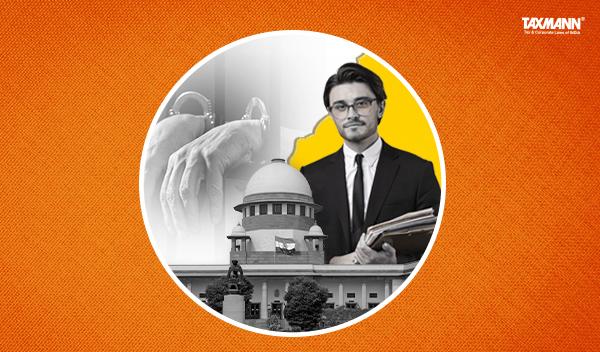ED Must Seek Custody From Special Court if Accused Isn’t Arrested Before Filing a Complaint u/s 44(1)(B) of PMLA | SC
- News|Blog|FEMA & Banking|
- 2 Min Read
- By Taxmann
- |
- Last Updated on 18 May, 2024

Case Details: Tarsem Lal v. Directorate of Enforcement - [2024] 162 taxmann.com 538 (SC)
Judiciary and Counsel Details
- Abhay S. Oka & Ujjal Bhuyan, JJ.
Facts of the Case
In the instant case, the question was placed before the Supreme Court regarding whether the Enforcement Directorate (ED) must seek custody from the Special Court if the petitioner/accused isn’t arrested before filing a complaint u/s 44(1)(b) of the PMLA.
It was noted that once a complaint under Section 44 (1)(b) of the PMLA is filed, it will be governed by Sections 200 to 205 of the CrPC as none of these provisions are inconsistent with any of the provisions of the PMLA.
Further, if the accused was not arrested by the ED till the filing of the complaint, the Court, while taking cognisance of a complaint under Section 44(1)(b), must, as a normal rule, issue a summons to the accused and not a warrant. Even, if the accused is on bail, a summons must be issued.
Supreme Court Held
The Supreme Court observed that after a summons is issued u/s 204 of the CrPC on taking cognizance of the offence punishable u/s 4 of the PMLA based on a complaint, if the accused appears before the Special Court pursuant to the summons, he shall not be treated as if he is in custody. Therefore, it is not necessary for him to apply for bail. However, the Special Court can direct the accused to furnish a bond in terms of Section 88 of the CrPC.
If the accused does not appear after a summons is served or fails to appear on a subsequent date, the Special Court has the authority to issue a warrant in terms of Section 70 of the CrPC. Initially, the Special Court should issue a bailable warrant. If it is not possible to effect service of the bailable warrant, then the recourse can be taken to issue a non-bailable warrant.
The Supreme Court, further observed that a bond furnished according to Section 88 of CrPC is only an undertaking. Therefore, an order accepting bonds u/s 88 from the accused does not amount to a grant of bail and hence, it is not necessary to fulfil the twin conditions of section 45 of the PMLA to accept the bond.
The Supreme Court held that after cognizance is taken of the offence punishable u/s 4 of the PMLA based on a complaint u/s 44 (1)(b), the ED and its officers are powerless to exercise the power u/s 19 to arrest a person named as an accused in the complaint.
Further, the Supreme Court held that if the ED wants custody of the accused, who appears after service of summons for conducting further investigation in the same offence, the ED will have to seek custody of the accused by applying to the Special Court. After hearing the accused, the Special Court must pass an order on the application by recording brief reasons.
Disclaimer: The content/information published on the website is only for general information of the user and shall not be construed as legal advice. While the Taxmann has exercised reasonable efforts to ensure the veracity of information/content published, Taxmann shall be under no liability in any manner whatsoever for incorrect information, if any.



 CA | CS | CMA
CA | CS | CMA
